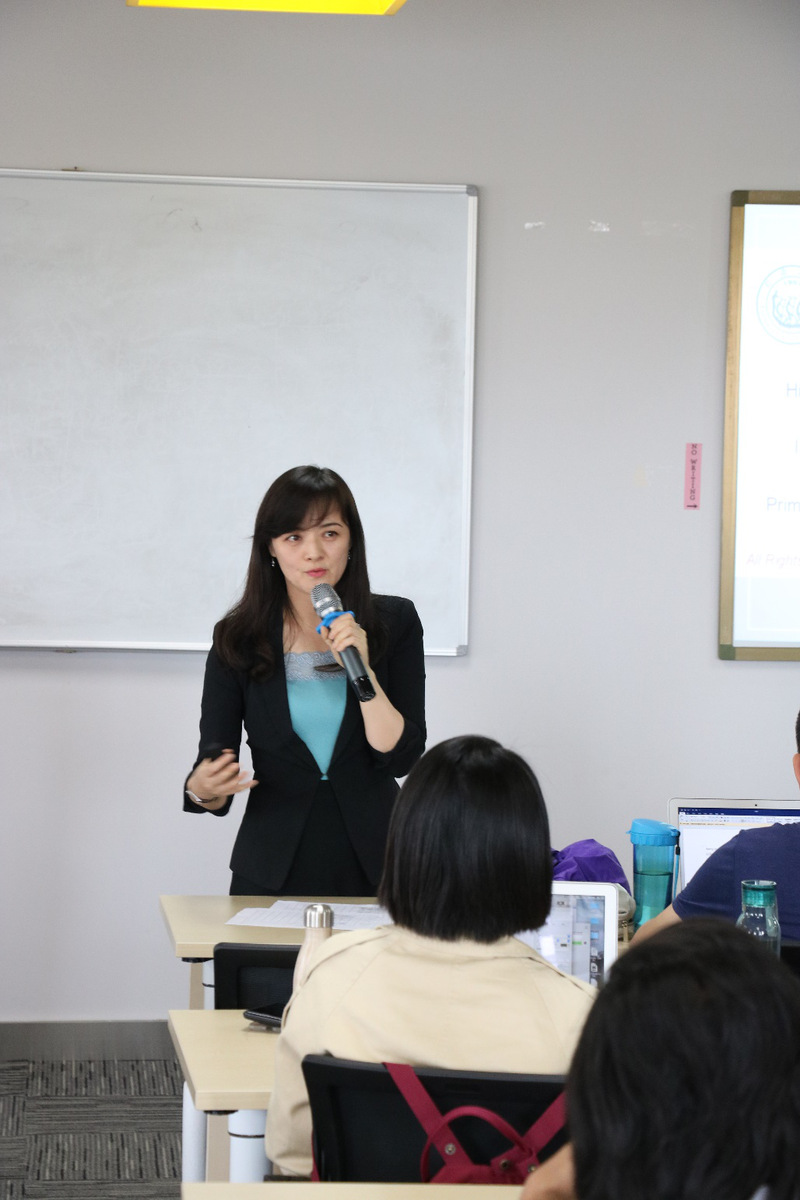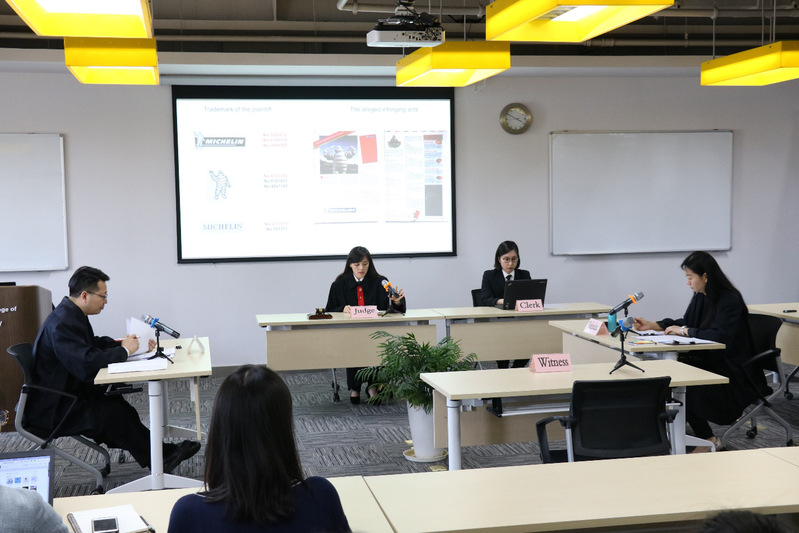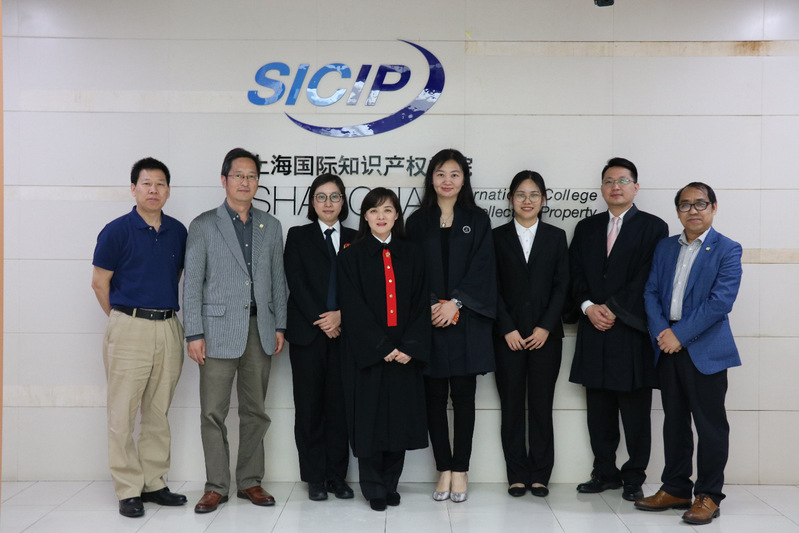In the afternoon of May 10th, the judge Wang Jing, judge Kong Liming,,court clerk Chen Jialiang of Shanghai High People’s Court and judge Xu Fei , judge assistant Jiang Linhao of Shanghai IP Court came to Shanghai International College of Intellectual Property and showed a moot court to students of WIPO and The Belt & Road class.

Judge Wang Jing introduced overviews on judicial protection of IPRs in and procedure of IP litigation in China
Before the moot court, judge Wang Jing introduced overviews on judicial protection of IPRs in China and procedure of IP litigation in China, including the structure of China’s IP court system, the basic information about IP civil litigation, IP administration litigation and IP criminal litigation in China, source of laws and judicial guidance of IP cases, the procedures of IP cases, and so on.
Next, the four judges and the court clerk conducted a moot court in the case of “Michelin Group Headquarters v. Shanghai Hezhou Advertising Co., Ltd. for Trademark Infringement”. It was divided into five stages: trial preparation, court investigation, court debate, final statement, case review and adjudication. The moot court vividly demonstrated the cross-examination and debate between the plaintiff and defendant. The plaintiff claimed that the defendant had published articles on commercial publications in its magazines and websites, in which many of the tire person images of the plaintiff and logos similar to the plaintiff’s trademark have been used. These activities seriously misled consumers, damaged the plaintiff’s goodwill and infringed the plaintiff’s trademark rights. Therefore, the plaintiff requested for damages of 500,000 RMB. And the defendant argued that it does not constitute an infringement of trademark rights, because the accused logo was different from the plaintiff’s trademark and the category it used was also different from the category of the goods approved to be used by plaintiff’s trademark. Even if it constituted infringement, the plaintiff had no damage and the defendant’s magazine had no profit. Additionally, it had been stated in the magazine that it was a parody and will not cause confusion to consumers.

The moot court in the case of “Michelin Group Headquarters v. Shanghai Hezhou Advertising Co., Ltd. for Trademark Infringement”
Finally, the four judges taught students how to act as the role of judge, plaintiff, defendant, and expert witnesses in moot court, which greatly helped the students in their own mock court.

Groupphoto




